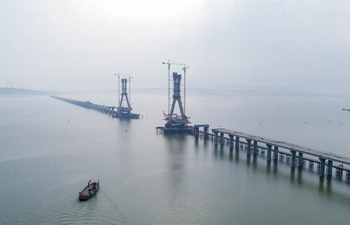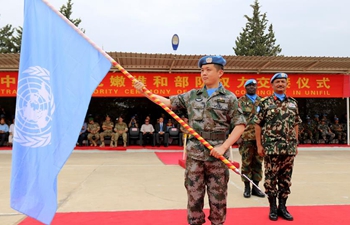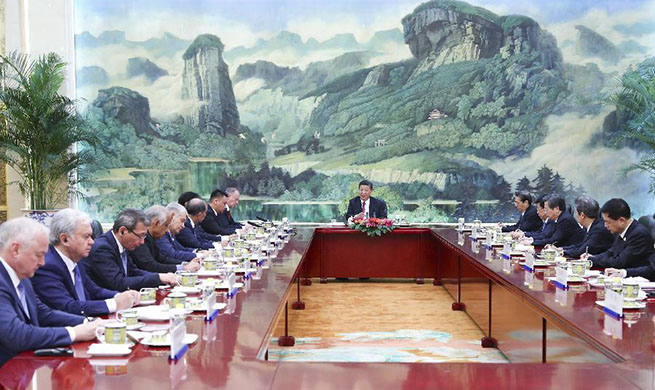by Xinhua writer Ren Ke
BERLIN, May 23 (Xinhua) -- In a world where free trade ideas and multilateral practices are trampled on easily, cooperation between China and Germany, two major stabilizers in the international community, is more eye-catching than ever.
From Thursday to Friday, Angela Merkel will visit China for the 11th time as German chancellor, which will make her an incumbent western leader with the most frequent visits to China.
China is now Germany's biggest trading partner and Germany is China's largest trading partner in the European Union. The two sides cooperate closely in the Group of 20 and other mechanisms. Merkel's China trip, which is the first top-level exchange between the two new governments both formed in March, will further promote bilateral ties.
But in the midst of turmoil in the world and given strengthened global statuses of both China and Germany, Merkel's trip and closer cooperation between Beijing and Berlin may go far beyond bilateral scope and China-EU ties at large.
In her podcast speech titled "Close cooperation with China" on Saturday, Merkel said Germany wants to strengthen multilateralism with China as Beijing adopts the same approach in addressing world issues. The two nations will also talk about bilateral relations and some major world issues, such as trade.
Multilateralism, a concept that has long been cherished by most of the countries in the world and upon which the international community operates, has now been doubted, or even challenged, once and again.
Thirteen years ago when Merkel was first elected German chancellor, Germany, with multilateralism as one of its key strategic goals, never imagined that the United States would intimidate the world by slapping tariffs, even against its allies across the Atlantic.
What is making the situation worse is the U.S. unilateral withdrawal from the Iran nuclear deal, of which China and Germany are parties concerned. Both countries have time and again emphasized the need to maintain the deal.
These issues, not to mention the U.S. abandoning of the Paris agreement on climate change, have made the world more vulnerable and put the rule-based international community under threat both economically and politically.
As major beneficiaries of and advocates for free trade system and economic globalization, China and Germany should jointly defend multilateralism.
By actively shouldering their international responsibilities and fulfilling their commitments, China and Germany stand side by side against protectionism, and would not allow unilateral acts to continue undermining global efforts.
The world is expecting China and Germany to signal solidarity on the rules-based multilateral order, on which global prosperity has rested for decades.

















